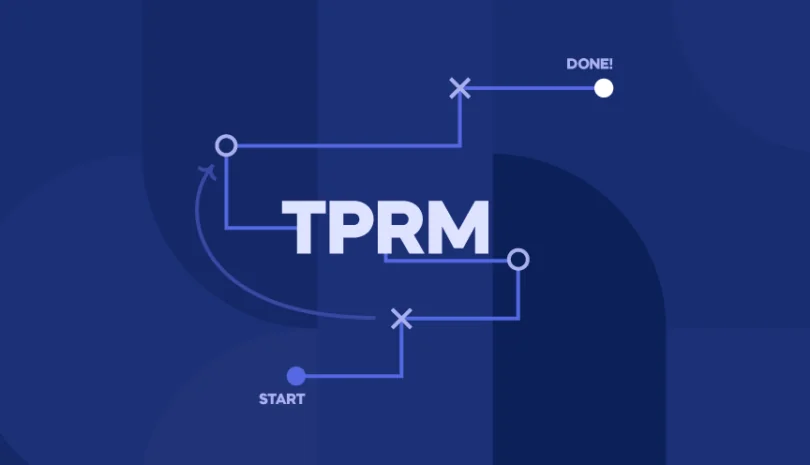CRISC stands for Certified in Information Systems and Risk Controls, and is a specific qualification for IT professionals, awarded by ISACA. That’s the short version. But what is CRISC exactly, and how can it improve your third-party security?
The CRISC Certification
CRISC certification is a risk management qualification that many people have used to build and progress their careers. With CRISC certification in place, one can potentially earn more money, look better in the eyes of employers and qualify for a wider range of roles in IT and Business Risk fields.
There are currently more than 26,000 certification holders worldwide, earning an average salary of $117,000 per year.
Those who wish to become CRISC certified must have several prerequisite skills already established. For example, they will need to be able to understand and manage the basics of enterprise risk and have some experience designing risk-based controls for information systems.
Some of the most common types of professionals pursuing CRISC certification include:
- Business risk professionals
- Control professionals
- Business analysts
- Project managers
- Compliance professionals
- Cybersecurity experts
- Other IT professionals
How to Become CRISC Certified
So how do professionals obtain CRISC certification?
They must have the following:
- Work experience. For starters, they must have at least three years of professional experience in at least two of the four areas of certification. However, they must have this experience within 10 years prior to your application date, and may gain some of this experience within five years of the application date. Work experience will be verified through former employers; if determined that this experience doesn’t meet CRISC standards, the applicant will need to retake the exam at a later date.
- Exam success. They need to pass the CRISC exam, issued by ISACA. The exam features 150 multiple-choice questions with different point values, with a maximum score of 800. A score of 450 is required to pass the exam. Those who pass and have relevant work experience will be eligible to apply for certification.
- Ongoing adherence to ethics. Those who are CRISC certified are required to adhere to ISACA’s general code of ethics. Violating any of these tenets can result in an investigation; and those found guilty of misconduct may face disciplinary measures. Fortunately, the ethical code is straightforward and relatively easy to follow. For example, it’s prohibited to disclose any information gleaned from exercising responsibilities (unless legally required to disclose that information). Responsibilities must be performed in a professional manner, with objectivity and ample due diligence. There are also vague standards to follow; for example, exercising “high conduct of character” at all times.
Benefits of CRISC Certification for Employees
Employees considering getting CRISC certified have the potential to receive a number of immediate benefits, including:
- A pay increase. For starters, CRISC certification could set someone up for a pay increase – if not now, then in the future. CRISC-certified IT professionals tend to make more money than their non-certified counterparts. In other words, they could get hired at a higher salary, or could be in a better position to ask for a raise in the future.
- Possibilities for promotion and future roles. Earning CRISC certification could set someone up for promotions and/or future roles. Those certified could advance their careers as security managers, or rise up to become a Chief Information Security Officer. CRISC certification could be of enormous help to someone looking for ways to improve chances for promotion.
- A more robust resume. Any certification or formal education in a specific field is going to make a resume look better, and make someone appear more competitive compared to other applicants.
- Greater knowledge of risk management. Of course, becoming CRISC certified requires learning a wide range of topics about risk management. This will increase the breadth and depth of knowledge, giving employees more tools, skills and resources to use in their IT jobs.
- Potential for communication and education. Becoming better versed in security and risk control topics can also help someone become a better communicator. CRISC-certified employees may be able to take on more responsibilities in the workplace, such as communicating complex topics to a lay audience or educating the other people in the department.
- Up-to-date knowledge. The world of IT security and risk management is always changing. Getting CRISC certified will ensure up-to-date knowledge.
Future Career Paths for CRISC-Certified Employees
CRISC certification can open up doors for possible career development in any one of a number of different roles, such as:
- Risk manager
- Security manager
- Business analyst
- IT manager
- Operations manager
- Information control manager
- Chief Information Security Officer
- Chief Compliance Officer
The Benefits for Employers (Including Third-Party Security Benefits)
Employers also stand to gain when their employees achieve CRISC certification, and in more ways than one. However, the most important benefit here is an improvement to your third-party security systems and processes. A CRISC-certified employee will have much more knowledge and experience they can use to find vulnerabilities in your current third-party security approach, design better information security systems and be able to execute those systems.
Throughout the organization, you’ll also enjoy the benefits of better insight and communication on complex risk topics. Your CRISC-certified employees will be more capable of explaining risk management topics to stakeholders and other leaders within your organization. Plus, they’ll be better at complying with your organization’s risk management and control plans.
Are you interested in improving your third-party security? Panorays can help. With Panorays, you can automate, accelerate and scale your third-party security process. Request a demo today to find out more!



